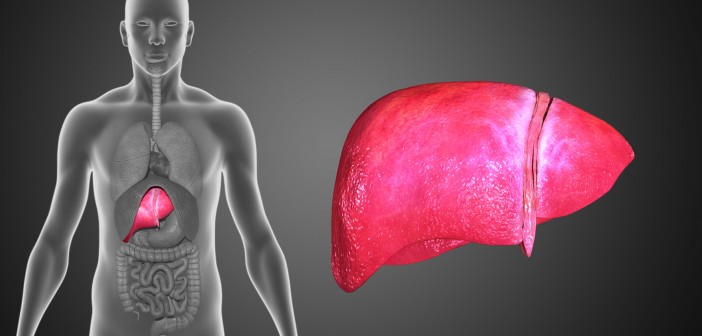Liver cancer is often deadly—less than 20% of patients survive five years—and it’s the leading cause of cancer-related deaths worldwide. And things aren’t getting better. Between the prevalence of hepatitis C and an escalating rate of obesity that leads to fatty liver disease and potentially cancer, new treatments are desperately needed for these cancer patients.
New research from the laboratory of Garth Powis, D.Phil., professor and director of SBP’s NCI-Designated Cancer Center, published in Hepatology, identifies RANTES—a protein secreted by immune cells—as a new potential therapeutic target to treat this life-threatening disease.
The connection between liver cancer and RANTES lies in the fact that the disorders from which liver cancer arises, such as infection, alcoholic liver disease and fatty liver disease, all cause inflammation. Inflammation promotes cancer because it increases cell division and produces free radicals—chemicals that mutate DNA.
Powis’s team, led by Mei Koh, PhD, research assistant professor in the Cell Death and Survival Program, discovered the importance of RANTES in mice whose liver cancer was caused by super-powered immune cells. These cells have the unique ability to continue to fuel inflammation when normal immune cells do not. They can generate energy even when very little oxygen is available—a condition known as hypoxia—which often arises in inflamed tissues.
In this study, the scientists were originally interested in how cancer cells adapt to hypoxia to continue growing. Tumors are typically hypoxic because growth of new oxygen-carrying blood vessels doesn’t keep pace with cancer cells’ high demand. But mutations in some cancer cells enable them to thrive without oxygen, and those ultimately dominate because of their survival advantage.
In their previous research, the Powis lab identified a protein called hypoxia-associated factor (HAF) that regulates the switch that allows cancer cells to become oxygen-independent. Here, they wanted to determine HAF’s overall role in the body, and found that it can also help prevent tumors from forming.
“HAF helps prevent liver cancer by preventing immune cells from becoming super-powered—it turns them ‘off’ after the injury has been addressed,” said Koh.
“We also found that when immune cells can keep driving inflammation in low-oxygen conditions, they make extremely high levels of RANTES that attract even more immune cells, leading to a vicious cycle,” she added. “When we neutralized RANTES, cancer growth was inhibited.
“Importantly, our results mirrored what we found in patient liver tumor samples. The tumor samples we tested had higher-than-normal amounts of RANTES and low levels of HAF, providing strong evidence that interrupting RANTES action could also treat liver cancer in humans.
“Our research provides a deeper understanding of the immune system’s role in cancer,” Koh commented. “The prevailing wisdom is that increasing immune activity can help eliminate tumors, but we now know that inappropriate immune activation may itself lead to cancer.”
The paper is available online here.
